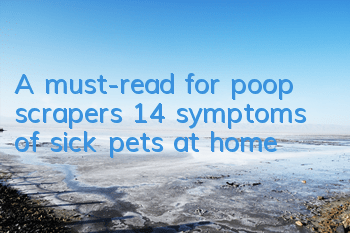Dogs can eat peanuts, but not too much. Feed them 20-30 pieces once or twice a month. Peanuts contain a large amount of calcium, which can help dogs replenish the calcium needed by their bodies and promote bone development. Peanuts also have the effect of moistening the lungs and relieving coughs. When your dog has a cold and cough symptoms, you can feed it some. peanut. However, peanuts have a high fat content. If your dog eats too much, he may suffer from vomiting, diarrhea and other symptoms. If you feed your dog peanuts for a long time, or if you feed your dog a large amount of peanuts, it will cause your dog to get angry. Peanuts are a high-oil and high-fat food. If your dog eats too much, it will increase the burden on the liver and cause it to grow. Being too obese can cause dogs to suffer from a series of diseases. In addition, it may also cause dogs to be picky eaters.
Peanuts are nutritional supplements for dogs. They are found in dog food and other things, so eat them as little as possible. Peanuts contain dietary fiber, which is insoluble fiber, which can improve the quality of feces and promote gastrointestinal motility. It can easily cause diarrhea after a large amount of intake. It is recommended to grind fried peanuts and mix them into the food when feeding to prevent esophageal obstruction. Do not feed the dog frequently. Do not feed the dog directly. This will cause indigestion and choking in the dog.
Tip:
Dogs eating peanuts can clean their mouths and remove oral odor. Peanuts also contain protein. Peanuts are also added to many dog foods to increase taste and protein and promote amino acid complementation for dogs. Peanuts contain a lot of fat and eating too much can cause indigestion, possibly diarrhea and vomiting, and can easily put a burden on the dog's body. Eating too many peanuts can easily cause abdominal distension, difficulty digesting the intestines, and may also cause symptoms such as vomiting and diarrhea. In severe cases, it may also induce swelling of the trachea and cause difficulty in breathing.








